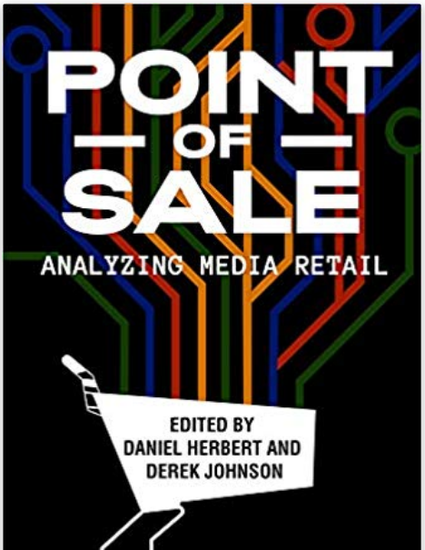
Contribution to Book
“Amazon, Bookseller: Disruption and Continuity in Digital Capitalism"
Point of Sale: Analyzing Media Retail
(2019)
Abstract
Amazon.com began as an online book retailer in 1995, not because founder and CEO Jeff Bezos had a passion to sell books, but because books were a logical first product in the earliest days of e-commerce. They were compact and easy to ship, and the huge variety of titles conformed to the as-yet un-coined logic of the “long tail.” Starting out as exclusively an online retailer for books, then moving into CDs and DVDs, Amazon (as it prefers to be called, and as most people refer to it) eventually became “the everything store.” Today bookselling is just one of Amazon’s many business interests (e.g. streaming, web services), but it remains a significant part of its revenue stream. According to one estimate, 7% of Amazon’s annual revenue came from books in 2014. Media sales overall, encompassing more than just books, accounted for 17.6% of 2016 revenue according to Amazon. Regardless of Amazon’s rapidly growing array of business interests, books remain important to the company’s brand identity and relationship with consumers, and a focus for innovation in e-tailing, technology, and now, brick-and-mortar selling.
[i] Chris Anderson, The Long Tail: Why the Future of Business is Selling Less of More (New York: Hyperion, 2018).
Keywords
- media retail,
- bookselling,
- commercialization of culture,
- digital capitalism,
- platforms
Publication Date
December, 2019
Editor
Daniel Herbert and Derek Johnson
Publisher
Rutgers University Press
Citation Information
Emily West. "“Amazon, Bookseller: Disruption and Continuity in Digital Capitalism"" New Brunswick, NJPoint of Sale: Analyzing Media Retail (2019) p. 40 - 57 Available at: http://works.bepress.com/emily_west/26/
